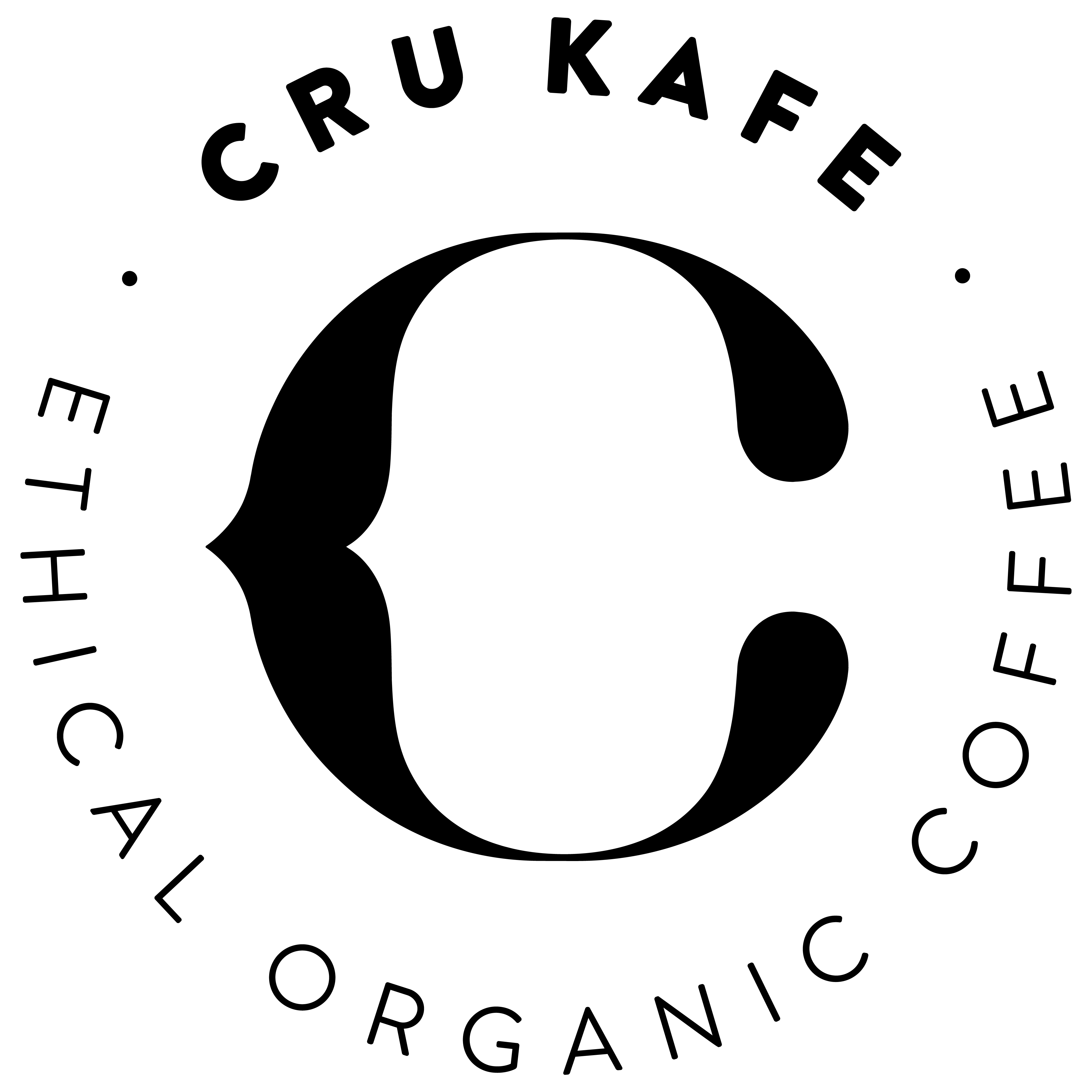Here at CRU, we are proud to sell Fairtrade coffee that is 100% traceable and sustainable. To celebrate this and shout about the importance of ethical coffee, we've teamed up with Fairtrade Coffee to delve a little deeper and really answer the question: Why Fairtrade?
Now, before we start getting into the nitty-gritty, we want to make it clear that we're not saying that it's 'Fairtrade or nothing'. Many coffee companies & charities working directly with farmers and co-ops (i.e. Non-Fairtrade) do absolutely fantastic work, but after meeting with our producers and suppliers, and talking to the people who see the results directly, we're happy that our decision to go Fairtrade is the right one for us - here and now.
Fairtrade improves the quality of your beans
Interestingly, this occurs via two channels. Firstly, the minimum price Fairtrade producers receive for their beans acts as a vital safety net, which gives them stability to plan for the future. These farmers know that higher quality produce can and does attract higher prices – so there is an incentive to innovate and improve quality. The second way through which this happens, is because at least 25% of the Fairtrade premium that coffee farmers receive is invested into improving the quality of their crop, and therefore the taste of your coffee.
Fairtrade protects farmers when the price of coffee falls
Fairtrade co-operatives can rely on at least the Fairtrade Minimum Price of $1.40 per pound of arabica coffee sold. This gives farmers the stability and confidence to budget for the next farming season and household expenses, and also helps to drive development in their communities. For 15 of the last 25 years, when the global price for arabica coffee has often fallen well below the Fairtrade Minimum Price, it has ensured farmers can earn enough to cover at least the basic costs of living and sustainable production.
Fairtrade initiatives help towards protecting the environment
Through Fairtrade’s environmental standards, coffee farmers are enabled to protect their environment, improve the quality of the coffee they grow and to adapt to the effects of climate change. One of the biggest challenges which has been caused by climate change is a plant disease called leaf rust, or La Roya. La Roya is a fungal disease which has destroyed crops and devastated coffee production, and therefore farmers’ incomes. Through Fairtrade, farmers have been equipped with resources, such as new coffee seed varieties and tools, to overcome the effects of La Roya. Additionally, co-ops receive training to facilitate dealing with the effects of La Roya and how to protect the environment which further mitigates against the impact of climate change.
Fairtrade supports female empowerment and equality.
Through Fairtrade, female coffee farmers have been empowered to participate increasingly in the coffee production and management of coffee co-operatives. Ivania Calderón Peralta, a coffee farmer for over 20 years at the Fairtrade co-op CECOCAFEN, Nicaragua, also holds important positions within the co-op such as secretary of the Managerial Board. CECOCAFEN is an example of a Fairtrade certified co-op which has developed a policy to achieve gender equality and has used the Fairtrade Premium to fund ongoing gender training. As a result, the participation of women has been increased and the Assembly is made up of 50% women and 50% men.
Fairtrade create an accessible way for you to buy ethical products
You may not realise how much of an impact switching to Fairtrade really has. Without committing yourself to donating, or organising a fundraising event, you are single-handedly supporting farmers who previously, were at the mercy of middlemen who named their price and left the coffee farmers with no other option. Many consumers expect coffee businesses to have an ethical approach to their coffee and three quarters believe that the best way to verify a product’s social or environmental claims is through an independent, third party organisation such as Fairtrade.




